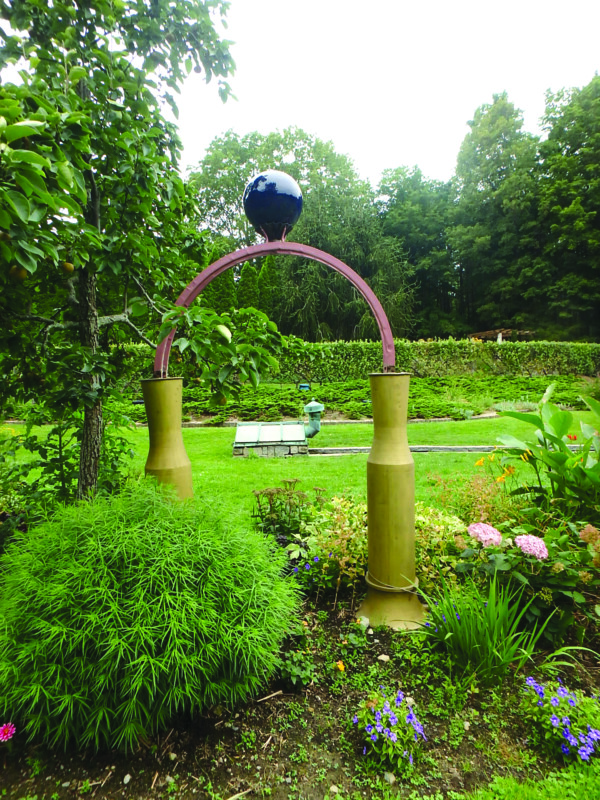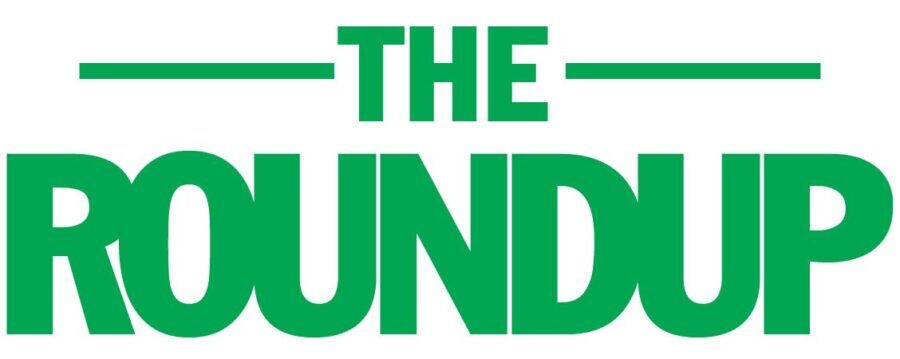The latest from NH’s theater, arts and literary communities
• Manchester maps: Catch the Currier Museum of Art’s (150 Ash St., Manchester) special exhibit, “Critical Cartography: Larissa Fassler in Manchester,” on view now through Monday, Sept. 6. The exhibit features immersive large-scale drawings created by Berlin-based artist Larissa Fassler, who was an artist-in-residence at the Currier Museum in 2019. Stylistically inspired by maps and cartography, the drawings reflect Fassler’s observations of downtown Manchester and explore civic issues like the use of public spaces, the role of community organizations in supporting the needs of citizens, and the effects of poverty on the physical and emotional health of a community. “Larissa’s drawings complicate our expectations of what a map can do,” Samantha Cataldo, curator of contemporary art, said in a press release. “As an artist, her role is to ask questions, rather than offer answers, and she inspires us to think critically about our own perspectives on the concepts present in her work.” Museum hours are Thursday from 10 a.m. to 8 p.m., and Friday, Saturday and Sunday from 10 a.m. to 5 p.m. Admission is $15 for adults, $13 for seniors age 65 and up, $10 for students, $5 for youth ages 13 through 17 and free for children under age 13. Call 669-6144 or visit currier.org.
• Outdoor poetry: In-person author events have returned to MainStreet BookEnds (16 E. Main St., Warner). Next up is a release party for Indebted to Wind, the latest book of poetry from New Hampshire poet L.R. Berger, on Saturday, Aug. 28, at 4 p.m. The event will be held outdoors, on the terrace of the Jim Mitchell Community Park, just outside the library. Call 456-2700 or visit mainstreetbookends.com.
• NH antique art: The New Hampshire Antique Co-op (323 Elm St., Milford) has an exhibit and sale, “Fresh Perspectives,” on view in the Co-op’s Tower Gallery now through Aug. 31. It features works by New Hampshire artists Peter Milton, Varujan Boghosian, Robert Hughes, Robert Hauser and others, including paintings, prints, sculptures, assemblages and collages. Visit nhantiquecoop.com or call 673-8499.
• Life is a cabaret: Don’t miss Cabaret at the Seacoast Repertory Theatre (125 Bow St., Portsmouth), on stage now through Sept. 5, with showtimes on Thursday at 7:30 p.m., Friday at 8 p.m., Saturday at 2 and 8 p.m., and Sunday at 2 and 7:30 p.m. The hit Broadway musical is set in 1931 Berlin as Nazis are riding to power and centers on the nightlife at the Kit Kat Klub and the relationship between a young American writer, Cliff Bradshaw, and cabaret performer Sally Bowles. Tickets cost $32 to $50. Call 433-4472 or visit seacoastrep.org.
• Call for art: Girls at Work, a Manchester-based nonprofit that empowers girls through woodworking and building, is seeking artists for its inaugural Women’s Artisan Fair scheduled for Friday, Oct. 15, and Saturday, Oct. 16. Women artisans are invited to submit handcrafted fashion pieces, home goods, paintings and other visual arts for consideration, according to a press release. There is an online form to request more information about how to submit artwork. Visit girlswork.org or call 345-0392.
The New Hampshire Art Association is now accepting online submissions of artwork for its 22nd annual Joan L. Dunfey Exhibition, which will be on display at NHAA’s Robert Lincoln Levy Gallery (136 State St., Portsmouth) in November. The juried show is open to all regional artists, both NHAA members and non-members. Works in all media will be considered and should be related to this year’s theme, “Portals.” Artists can submit up to two pieces. The submission deadline is Monday, Sept. 20, by 5 p.m. The exhibit is one of NHAA’s most prestigious exhibits of the year, according to a press release, and is held in honor of Joan L. Dunfey, who was a resident of the New Hampshire Seacoast and a steadfast patron of the arts. Visit nhartassociation.org or call 431-4230.
ART
Call for Art
• WOMEN’S ARTISAN FAIR Girls at Work, a Manchester-based nonprofit that empowers girls through woodworking and building, is seeking artists for this fair, which is set for Oct. 15 and 16. Women artisans are invited to submit handcrafted fashion pieces, home goods, paintings and other visual arts for consideration. Visit girlswork.org or call 345-0392.
Exhibits
• SHEAFE WAREHOUSE EXHIBIT AND SALE Featuring works in a variety of media by nearly 40 artists with the New Hampshire Art Association. Wednesday, Thursday and Sunday, from noon to 5 p.m., and Friday and Saturday, from noon to 7 p.m., now through Aug. 29. Prescott Park, 105-123 Marcy St., Portsmouth. Visit nhartsassociation.org or call 431-4230.
• NEW HAMPSHIRE ART ASSOCIATION EXHIBITS Featuring the work of painters Joe Flaherty of Portsmouth and Maryclare Heffernan of Candia during August. Gallery hours are Tuesday through Friday, from 10 a.m. to 5 p.m., and Saturday, from 10 a.m. to 3 p.m. Creative Framing Solutions, 89 Hanover St., Manchester. Visit nhartsassociation.org or call 320-5988.
• “FRESH PERSPECTIVES” Exhibit features works by New Hampshire artists Peter Milton, Varujan Boghosian, Robert Hughes and others. New Hampshire Antique Co-op (323 Elm St., Milford). On view in the Co-op’s Tower Gallery now through Aug. 31. Visit nhantiquecoop.com.
• “FASHION FORWARD: AFRICANA STYLE” Exhibit showcases Black fashion and explores connections between African American and African design aesthetics from past to present. The Seacoast African American Cultural Center (located inside the Portsmouth Historical Society, 10 Middle St., Portsmouth). On view now through Sept. 1. Gallery hours are Monday through Sunday, from 10 a.m. to 4 p.m.; visitors must reserve a 45-minute time slot in advance. Walk-in guests will be accommodated as space permits. Tickets cost $10 for the general public and $5 for Historical Society members and are available through eventbrite.com. Visit saacc-nh.org.
• “CRITICAL CARTOGRAPHY” Exhibit features immersive large-scale drawings by Larissa Fassler that reflect the Berlin-based artist’s observations of downtown Manchester while she was an artist-in-residence at the Currier Museum in 2019. On view now through Sept. 6. Currier Museum of Art, 150 Ash St., Manchester. Museum admission tickets cost $15, $13 for seniors age 65 and up, and must be booked online. Call 669-6144 or visit currier.org.
• “DON GORVETT: WORKING WATERFRONTS” Exhibit features more than 60 works by the contemporary Seacoast printmaker. The Portsmouth Historical Society (10 Middle St., Portsmouth). On view now through Sept. 12. Gallery hours are daily, from 10 a.m. to 5 p.m. Admission costs $7.50 for adults and is free for kids under age 18, seniors age 70 and older and active and retired military. Admission is free for all on the first Friday of every month. Visit portsmouthhistory.org.
• “THE BODY IN ART: FROM THE SPIRITUAL TO THE SENSUAL” Exhibit provides a look at how artists through the ages have used the human body as a means of creative expression. On view now through Sept. 12. Currier Museum of Art, 150 Ash St., Manchester. Museum admission tickets cost $15, $13 for seniors age 65 and up, and must be booked online. Call 669-6144 or visit currier.org.
• “TWILIGHT OF AMERICAN IMPRESSIONISM” Exhibit showcases New England painters and masters of impressionism Alice Ruggles Sohier and Frederick A. Bosley. On view now through Sept. 12. Portsmouth Historical Society (10 Middle St., Portsmouth). Gallery hours are daily, from 10 a.m. to 5 p.m. Admission costs $7.50 for adults and is free for kids under age 18, seniors age 70 and older and active and retired military. Admission is free for all on the first Friday of every month. Visit portsmouthhistory.org.
• “ROBERTO LUGO: TE TRAIGO MI LE LO LAI – I BRING YOU MY JOY” Philadelphia-based potter reimagines traditional forms and techniques with inspiration from urban graffiti and hip-hop culture, paying homage to his Puerto Rican heritage and exploring his cultural identity and its connection to family, place and legacy. The Currier Museum of Art (150 Ash St., Manchester). On view now through Sept. 26. On view now. Currier Museum of Art, 150 Ash St., Manchester. Museum admission tickets cost $15, $13 for seniors age 65 and up, and must be booked online. Call 669-6144 or visit currier.org.
• 1,000 CRANES FOR NASHUA Featuring more than 1,000 origami paper cranes created by hundreds of Nashua-area kids, adults and families since April. On display now at The Atrium at St. Joseph Hospital, 172 Kinsley St., Nashua. Visit nashuasculpturesymposium.org.
• GALLERY ART A new collection of art by more than 20 area artists on display now in-person and online. Creative Ventures Gallery (411 Nashua St., Milford). Call 672-2500 or visit creativeventuresfineart.com.
• “TOMIE DEPAOLA AT THE CURRIER” Exhibition celebrates the illustrator’s life and legacy through a collection of his original drawings. On view now. Currier Museum of Art, 150 Ash St., Manchester. Museum admission tickets cost $15, $13 for seniors age 65 and up, and must be booked online. Call 669-6144 or visit currier.org.
• ART ON MAIN The City of Concord and the Greater Concord Chamber of Commerce present a year-round outdoor public art exhibit in Concord’s downtown featuring works by professional sculptors. All sculptures will be for sale. Visit concordnhchamber.com/creativeconcord, call 224-2508 or email tsink@concordnhchamber.com.
• “TENSION: PROCESS IN THE MAKING” The Surface Design Association’s (SDA) New Hampshire Group presents an exhibit featuring fiber art and textiles by New Hampshire artists. On view now through Sept. 4. Twiggs Gallery (254 King St., Boscawen). Visit twiggsgallery.wordpress.com or call 975-0015.
• “SUMMER HAZE” Concord artist and gallery owner Jess Barnet hosts her first group art exhibit. Gallery located in the Patriot Investment building, 4 Park St., Suite 216, Concord. On view now through Sept. 3. Visit jessbarnett.com.
Fairs and Markets
• CONCORD ARTS MARKET Outdoor artisan and fine art market. Every third Saturday, 10 a.m. to 3 p.m. Now through October. Rollins Park (33 Bow St., Concord). Visit concordartsmarket.net.
Tours
• NASHUA PUBLIC ART AUDIO TOUR Self-guided audio tours of the sculptures and murals in downtown Nashua, offered via the Distrx app, which uses Bluetooth iBeacon technology to automatically display photos and text and provides audio descriptions at each stop on the tour as tourists approach the works of art. Each tour has 10 to 15 stops. Free and accessible on Android and iOS on demand. Available in English and Spanish. Visit downtownnashua.org/nashua-art-tour.
Workshops and Classes
• GENERAL ART CLASSES In-person art classes for all levels and two-dimensional media. held with small groups of two to five students. Private classes are also available. Diane Crespo Fine Art Gallery (32 Hanover St., Manchester). Students are asked to wear masks in the gallery. Tuition costs $20 per group class and $28 per private class, with payment due at the beginning of the class. Call 493-1677 or visit dianecrespofineart.com for availability.
• DRAWING & PAINTING CLASSES Art House Studios, 66 Hanover St., Suite 202, Manchester. Classes include Drawing Fundamentals, Painting in Acrylic, Drawing: Observation to Abstraction, Exploring Mixed Media, and Figure Drawing. Class sizes are limited to six students. Visit arthousestudios.org.
Theater
Shows
• SLEEPING BEAUTY The 2021 Bank of New Hampshire Children’s Summer Series presents. Palace Theatre (80 Hanover St., Manchester). Wed., Aug. 25, and Thurs., Aug. 26, 10 a.m. and 6:30 p.m. Tickets cost $10. Visit palacetheatre.org.
• HOOLIGANS AND CONVICTS The Winnipesaukee Playhouse presents. 33 Footlight Circle, Meredith. Now through Sept. 4, with showtimes Tuesday through Saturday, at 7:30 p.m., plus matinees on Tuesday, Aug. 24, and Thursday, Aug. 26, at 2 p.m. Tickets cost $20 to $39. Visit winnipesaukeeplayhouse.org.
• CABARET The Seacoast Repertory Theatre presents. 125 Bow St., Portsmouth. Now through Sept. 5. Visit seacoastrep.org or call 433-4472.
• IT HAD TO BE YOU The Winnipesaukee Playhouse presents. 33 Footlight Circle, Meredith. Sept. 1 through Sept. 18, with showtimes Tuesday through Saturday at 4 p.m., plus matinees on Saturdays, Sept. 11 and Sept. 18, at 11 a.m. Tickets cost $20 to $37. Visit winnipesaukeeplayhouse.org.









